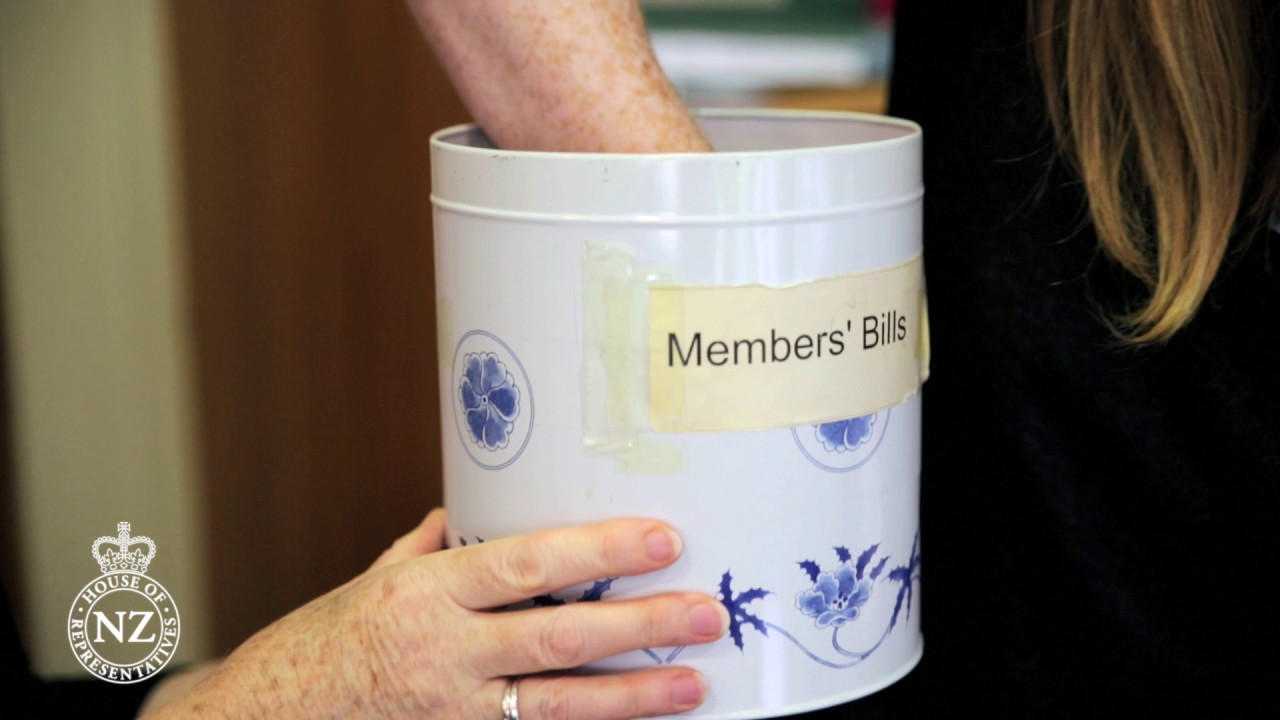
Ready Set Go! | Image by Hellie Hadfield
Newsflash: You can now collaborate on entries! Just hit the ‘manage collaborators’ link at the top of the entry form, and invite colleagues to work with you.
That’s right, we’ve gone live!
Entries are now open for the 2023 Plain Language Awards.
Our virtual postboxes at Awards HQ are waiting to be filled to the brim with your concise reports, clear technical documents, accessible websites, and simple sentences. As always, you can choose from 13 categories, so hop to it!
Short on time? Here are some easy ones…
Have you already transformed something old and gnarly into something clear and shiny? Whether a whole document or website, or merely a troublesome sentence, we’ve got you covered. Check out the Best Plain Language Turnaround and Best Plain Language Sentence Transformation categories.
Documents, plain and simple
The Best Plain Language Document category celebrates beautiful business documents that are clear on purpose and content. Enter yours in the category for public sector or private sector.
Maybe you and your team have been grappling with an annual report, making your end-of-year business story easy for all to absorb. If so, be sure to check out the Best Plain Language Annual Report category.
Or maybe you’ve created a masterful document that banishes legal jargon and uses plain language? If your document covers legal, financial, or compliance topics, check out Best Plain Language Legal Document.
Epic website?
For the technical whizzes and content enthusiasts, why not enter your super easy-to-use website in the Best Plain Language Website category?
Masters of simplification
Are you, or someone in your company, the go-to for simplifying technical topics and communicating with clarity? Then enter a portfolio in the Best Plain Language Technical Communicator.
Maybe an individual or a team in your organisation really stands out as having championed plain language changes? Maybe they’ve run workshops, created some resources, or led organisation-wide initiatives? Sounds like they should be put forward for the Plain Language Champion — Best Individual or Team.
Or, has your organisation taken things a step further, and successfully transformed the writing culture of the workplace? If so, prepare your entry portfolio for the Plain Language Champion — Best Organisation category.
Or nominate someone else
Seen someone else do an awesome job? Maybe your insurance company has a super clear website, or a friendly government agency communicated in a top-notch manner. If so, why not nominate them for People’s Choice — Best Plain Language Communication. They deserve to be celebrated!
If, on the other hand, you have come across some truly diabolical discourse, a real humdinging head-scratcher, why not enter it in People’s Choice — Worst Brainstrain Communication. That way, you’ll help to bring about a positive change.
So what are you waiting for?
The Awards categories have something for everyone and every type of business writing. So what are you waiting for? Get entering!
Enter the 2023 Plain Language Awards
Hellie Hadfield May 1st, 2023
Posted In: 2023 Plain Language Awards, Communications
Tags: clear communication, plain language, Plain Language Awards

The Plain Language Act is the start of a new era | Photo by DaMoJo on excio.io
Lynda Harris, chief executive of Write Limited and founder of the Plain Language Awards, gave this speech at the online Awards ceremony on 27 October 2022.
Kia ora koutou, welcome plain language friends
Who would have thought that we’d be not only celebrating finalists and winners today, but the birth of a Plain Language Act as well. It feels like a new era. It’s been thrilling to receive so many well wishes from plain language advocates around the world … these include people in government, in healthcare, in the legal and financial sectors, all of whom see New Zealand’s legislation as a model for others to follow.
Unfortunately, those who opposed the bill called it a ‘stupid piece of legislation that doesn’t actually fix anything, And there’s absolutely no evidence that there’s actually a problem.’
There is evidence. Plenty of it.
And because of that, I believe this is a historic moment with so much potential for good. Let me show you why.
First let’s start with the many reasons as to ‘why plain language matters to you and me’. The reasons are the things we talk about often: transparency, access to justice and to the rights we enjoy as people who live here, efficiency, trust, fairness, and many more foundational concepts that we believe make a healthy, happy society.
We don’t tend to notice when these important expectations play out as they should. But we do take notice when they don’t. We quickly tend toward frustration, indignation, perhaps even anger. We might even give up.
The members of the public who nominate documents and websites for the Brainstrain award certainly feel those things. Thinking back over nominations for that dubious award I can recall:
- a frazzled business owner who was deeply frustrated by a COVID-19 leave application form
- a passenger who described their search for information on an airline’s website ‘as going around in circles’
- someone reading a council letter who said ‘I felt a bit ill when I tried to read this impenetrable letter’
- a director trying to update company details on what he called ‘this dreaded website, whose interface is user-unfriendly to an unusual degree’
- a deeply frustrated parent trying to enrol their children in a rural primary school
- a person with a masters degree who angrily said they couldn’t understand a letter from their city council
- a frustrated customer of a major bank who described a letter as unintelligible
- an elderly woman who couldn’t understand an important letter from the hospital
- a student who couldn’t navigate a form for a badly needed loan.
Those who nominated these documents are everyday people, like you and me … consumers, parents, small business owners, ratepayers, travellers, students, patients, and individuals simply trying to get our lives in order. So that’s evidence at a personal level.
But there’s more.
A second set of evidence of the need for plain language is found in the many submissions on the Bill. They came from groups and individuals from every walk of life, some already disadvantaged in one way or another. But the story was always the same … hurt, harm, frustration, barriers, all caused by unclear information. I wish I had time to share some of them with you.
And now let’s look at a third set of evidence. I’m talking about your entries, that came from across the public and private sectors on a vast array of topics, written for audiences representing every aspect of New Zealand society. Every one of you wrote, or rewrote those documents, because you saw evidence that something wasn’t working, or you understood the consequences of not communicating well, and you did something about it. And you did it for others, not for you.
Which brings me back to my comment that the Act has tremendous potential for good, and particularly so through you, who are already plain language advocates.
I see the Act as a giant OPPORTUNITY for all, in neon capital letters. And I suggest that that we can do two things — at least — to make the most of it.
The first is to:
Speak up: in your workplace, step into your reader’s shoes, notice more, find the stories that need to be told. In your private life, be an aware consumer, speak up when information isn’t plain, not only for yourself, but for those who feel the fault in comprehension is theirs, when we know that it’s not.
And the second is to:
User-test: Be an agent for change by getting proof of what’s not working. You won’t know what people understand or don’t understand from your messages if you don’t ask them. And you won’t know their emotional reaction either. You’ll be amazed at what people tell you if they are given a chance.
I recall some user-testing we did for a law firm years ago. The senior team didn’t believe a communication problem existed because no one complained. The frank and somewhat shocking feedback from the user-test group led the team to humbly conclude ‘silence doesn’t mean satisfaction’.
And so to end, may I suggest that you, who know the power of plain language, use this new Act as the wind beneath your wings. Allow it to be a triumph for democracy, and a catalyst to achieve all those things we mentioned at the start — equity, inclusion, transparency, and above all, clarity in the documents that we all need to live our lives well.
And congratulations to all our winners, finalists, and entrants celebrated here today.
Lynda Harris October 27th, 2022
Posted In: 2022 Plain Language Awards, 2022 Plain Language Awards ceremony, Story theme
Tags: advocate, Brainstrain, clear communication, People's Choice, plain language, Plain Language Act, Social good

Good, better, best: it's over to the judges to decide | Photo by Canstock
Thanks to all who entered this year’s Awards! After a flurry of last-minute entries, we have handed everything over to our intrepid judging team. All 36 of them!
This year a third of the judges are from New Zealand and the rest are from the US, UK, Australia, and Europe. All are accomplished plain language experts and strong advocates for Ernest Gowers’ advice: ‘Be short, be simple, be human’.
How do our expert independent judges pick their winners? It’s a big job so we thought you’d like to know a bit more about it.
First up, shortlisting
First, our judges read over each entry, carefully checking against the plain language criteria. Then they vote on their shortlist. This all happens independently in the Submittable system, which allows ‘thumbs-up, thumbs-down’ voting.
Next, reviewing
Next, judges do a detailed review of all entries, writing comments for each of the assessment criteria. Each panel works hard to make sure feedback is balanced, fair, and helpful. The goal at this stage is to recognise and affirm great writing and to help entrants do even better by making suggestions and giving examples for improvement.
We know that entrants really value the expert feedback. For some, it’s the best aspect of entering! Submittable calculates scores for each of the criteria and averages them across the judging panel to help the panel agree on a few contenders for the category awards.
Last, picking the finalists and winners
Now the judges deliberate as a team to pick their finalists and winners — quite a logistics exercise with judges living all over the globe! The deliberation stage can involve lots of lively debate, especially when many entries are of a very high standard!
When judges need to choose between two excellent entries, it usually comes down to impact. Entries where the work has made the greatest positive impact will usually triumph.
When all is agreed, lead judges review the written comments for all shortlisted entries to make extra sure that the comments are clear and helpful.
So if you entered this year, good luck! Regardless of the outcome, you’ve done a good thing and your users are thanking you! (A trophy is good too of course!)
How the judging process works
Judges for the 2022 Plain Language Awards
Lynda Harris August 16th, 2022
Posted In: 2022 Plain Language Awards, Judges, Shortlists
Tags: clear communication, judges, plain language, Plain Language Awards

The Plain Language Bill starts its journey | Photo by Sulthan Auliya on Unsplash
The Plain Language Bill is being considered by the New Zealand Parliament. If the bill becomes law, it will require all government agencies to communicate in plain language.
Below you can read the submission made by the WriteMark Plain English Awards Trust to the Governance and Administration Select Committee.
The WriteMark Plain English Awards Trust advocates for the use of plain language in all documents that affect our ability to participate and function well in New Zealand society.
The Trust achieves its purpose primarily through running the annual Plain English Awards, which aim to:
- improve government and business documents so that all New Zealanders can understand them raise public awareness of the need for, and benefits of, plain language
- create a public preference for organisations that choose to communicate in plain language.
What is plain language?
Plain language (sometimes called plain English in New Zealand) is a style of writing in which the language, structure, and presentation of a document all work together to help the reader. A document written in plain language is easy to read, understand, and act on after just one reading.
30 March 2022
Governance and Administration Select Committee
Parliament Buildings
Submission in support of the Plain Language Bill
Tēnā koe
The WriteMark Plain English Awards Trust strongly supports the Plain Language Bill. This submission sets out our reasons and offers some suggestions to make the bill even more useful.
Why we support the bill
Over the past 17 years our interactions with public and private sector organisations, and members of the public, have given us an insider’s view of how language quality affects organisational outcomes and citizens’ lives. We can say unequivocally, that much public sector writing falls far short of the label ‘plain’. Many documents are unclear, lack a human-centred approach, and do not fulfil their purpose.
So, we strongly support any initiative to improve the quality of public-facing government documents. Our view is coloured by both the negatives mentioned below from the People’s Choice category and, conversely, by surveys that capture the real-world impact of excellent documents.
The public speak — evidence of harm and frustration from poorly written documents
In particular, documents and websites nominated in the People’s Choice Worst Brainstrain category emphasise the degree of harm and frustration, not to mention the waste of time and resources, created by poor writing.
A high proportion of the nominations in the Brainstrain category are complaints and concerns about communications from government agencies. They document the damage, frustration, and stress caused by unclear or misleading information, forms, and policies.
Just a few examples of government agencies ‘dobbed in’ by the public include the Reserve Bank, Inland Revenue, Commerce Commission, Ministry of Education, Department of Internal Affairs, Parliamentary Service, Earthquake Commission, and the (then State) Services Commission.
In many of the Brainstrain category nominations, we hear the real-world stories from people who were not served well by their government. They missed a deadline, couldn’t access a health service, missed out on the right benefit, underpaid tax, or didn’t apply for a government job — all because they didn’t understand, or they misunderstood. Most of these cases paint a picture of members of the public feeling vulnerable, disillusioned, and unheard.
Applying lessons from the good
Of course, the Plain English Awards are mostly about celebrating the good. We see outstanding examples of plain language every year and applaud those government agencies who write for the public with clarity and empathy. What would happen if all agencies wrote to that high standard? What if excellence were the norm?
Those agencies that write well give us a glimpse of what the Plain Language Act could achieve. Based on the outcomes noted on the entry forms of category winners, we’d see a positive transformation in writing quality inside government agencies. This shift would in turn result in a positive change in public perceptions.
In government agencies we’d see:
- significant efficiencies in producing documents, saving time and salaries
- greater ability to meet deadlines, with a better-quality result
- fewer misunderstandings
- more coherent, better planned messaging — getting it right the first time
- less time and angst answering the public’s queries because confusion has been removed
- less time editing or reworking colleagues’ documents that fall short of the basic standards of plain language
- less money being wasted on civil servants having to learn new ways of writing every time they move departments
- the likelihood that government ministers would drop their personal preferences that cost so many writers so much time.
We’d also see:
- easier working lives and greater job satisfaction for ministers and civil servants alike — this means reduced stress, fewer sick days, few resignations, and reduced likelihood of unmotivated workers
- a recognisable government style that is clear, human, and helpful.
For members of the public, we’d see:
- people feeling empowered to access the information they need
- more equitable access to information because people can find and understand the information they need
- reduced need to contact agencies to clarify information or instructions
- greater trust and confidence in government communications
- an observable humanising of tone, even in communications from regulatory agencies.
Additionally, businesses and other organisations would gain a touchstone for what good writing looks like — an impact that cannot be underestimated.
Recommendations to take the bill further
We have two recommendations to increase the impact of the bill and reduce the cost of administration across government agencies.
Include a plain language standard to clarify expectations
The Plain English Awards are based on the aspiration of writing to a high standard. Indeed, they take their name from standards-based sponsor WriteMark. Therefore, we highly recommend that the bill require government agencies to adopt a short and achievable writing standard such as the freely available and customisable Write Plain Language Standard.
We understand that this useful standard is already widely used and adapted by many New Zealand government agencies, plus a number of organisations internationally. Providing agencies with a documented standard makes expectations clear and avoids duplicate effort across the public sector.
Include consequences for non-compliance
The bill has so much potential to improve the effectiveness and reputation of government. But we are concerned that it may have much less impact if there are no meaningful consequences for failing to implement it. Our contacts in the US plain language movement tell us that the US Plain Writing Act was quite effective at first, but became much less so over time as agencies realised nothing would happen if they did not comply.
Thank you for the opportunity to comment.
Gregory Fortuin
WriteMark Plain English Awards Trust
Anne-Marie Chisnall May 5th, 2022
Posted In: 2022 Plain Language Awards, Clear communication, Communications
Tags: clear communication, democracy, government communication, plain language, Plain Language Bill, writing for the public

It’s time for clarity like these crystal clear reflections at Lake Dunstan, Bendigo in Otago, New Zealand | Photo by Stewart Watson on Excio
With entries for the 2022 Awards opening very soon, we’ve been making a few changes at Awards Central!
Welcome to our new Awards coordinator
First of all, we welcome our new Awards coordinator, Shelly Shah, to the Awards Working Group. Shelly will be helping us with all aspects of the 2022 Awards — from organising the entry process and confirming sponsors and judges, right through to coordinating the Awards ceremony in late October. You’ll hear more from Shelly as we move through the various phases of the Awards.
Write Limited is proud to sponsor the Awards and provides administrative support as part of its sponsorship.
New year, new name
Have you noticed a slight change in our branding? Yes, the Awards are now called the Plain Language Awards.
Some of you commented in the survey at the end of 2021 recommending this change. Like you, we hope that changing the name of the Awards will make the event even more inclusive. And our trustees agreed unanimously with the proposal.
Changing the name of the Awards reflects the general shift to talk about ‘plain language’ in many community and business contexts, rather than ‘plain English’. You’ll have noticed that the Plain Language Bill that’s going through New Zealand’s Parliament also uses ‘plain language’ in its title!
The term ‘plain English’ is still relevant in international contexts when we wish to talk about plain English contrasted with, for example, plain Japanese or plain Spanish.
Awards founder Lynda Harris says:
We’ve been keen to update the name of the Awards for some time. But we knew we’d have a lot to do even though we’re only changing one word! We decided to make it happen for 2022. The Awards have been running for an incredible 17 years and this change feels like a fantastic refresh of our brand!
Awards patron Chloe Wright says:
‘Language’ is so relevant to today.
Our fabulous designer and long-term sponsor, Craig Christensen of Graphic Solutions, has been working his magic and is updating our branding elements and the website.
Thanks for your feedback on the 2021 Awards
Thanks to everyone who replied to our survey with their feedback. You can read the results of the survey on our website. Overall you thought the online ceremony worked well, enabling more people to join from around New Zealand and the rest of the world. And it’s great to hear that you agree the Awards are still making a difference!
Find out what people said about the Awards in 2021
Anne-Marie Chisnall May 4th, 2022
Posted In: 2022 Plain Language Awards, Communications
Tags: Industry awards, plain language, Plain Language Awards, sponsors

The Plain Language Bill was drawn from the parliamentary biscuit tin on 23 September 2021
We were thrilled to welcome Nelson MP Rachel Boyack as guest speaker at the Plain English Awards ceremony on 14 October 2021. Her speech is below and it’s a great read! Rachel speaks from the heart about her enthusiasm for clear communication and its benefits for New Zealanders. She especially encourages supporters of plain language to support the new Plain Language Bill as it progresses through Parliament.
Welcome by Awards MC James Elliott
Now it’s my pleasure to welcome our guest speaker for the Awards. This is Nelson MP Rachel Boyack. As we said earlier, Rachel’s private member’s bill, the Plain Language Bill, was recently drawn in the parliamentary ballot. So it’s very fitting that Rachel joins us today to be our guest speaker. And with the potential for the Plain Language Bill to become law, New Zealand could join the countries around the world that have a legislative basis for plain language in their government agencies and public communications documents. Thank you for joining us, and welcome Rachel.
Rachel Boyack’s speech
View the video of Rachel’s speech at the Plain English Awards ceremony

Rachel Boyack MP: Champion of plain language
Tēnā koutou katoa. Ngā mihi nui ki a koutou
It is an honour to join you today and to have the opportunity to speak to you about my private member’s bill, the Plain Language Bill. My thanks to the team who have worked so hard to put on these Awards today during a pandemic. It’s no easy feat.
Congratulations to all of the nominees, finalists, and award winners celebrated today. Thank you for your commitment to plain language and your willingness to put yourselves forward for judging. While it is always risky singling out one organisation for praise, as the MP for Nelson, I am pleased to see Cawthron on the list of finalists today. I’m proud to be a trustee of Cawthron, and I acknowledge their commitment to good science communication. The last two years are a stark reminder of why good science communication is so important.
It is somewhat nerve-wracking to be speaking to a group of communications experts about a Plain Language Bill. Since my bill was drawn from the parliamentary biscuit tin, I had been very mindful that all of my communications must be crystal clear. I would like to acknowledge my colleague, Chris Hipkins, who was the original drafter of the Plain Language Bill almost 10 years ago.
As a new MP, I was asked to take on this bill. And there was a reason that I was delighted to do so. Fifteen years ago, I was a fresh young graduate starting my professional career in a small public sector agency in Wellington called the Leadership Development Centre. I was given a role in communications despite having no formal training in this type of work.
My boss, who was a pedant, sent me on a number of plain English courses with Write Limited. The training from Write set me up in my professional career, and has helped me to ensure that the documents and statements I produce are clear and easily understood. The first thing I did after having my bill drawn was to ask my assistant to ring Write and set up a meeting.
I am keen to work with the sector and all of you, the plain language champions across Aotearoa, as my bill progresses. The purpose of my bill is to require public sector agencies to write their documents and their website content using plain language. Agencies will have a plain language champion who will be responsible for training staff and reporting to the Public Service Commission about plain language use in their agency. Members of the public will be able to raise concerns about documents with the plain language champions.
Plain language is a democratic right. My goal is for more people to have good communication from government agencies so that we can all participate fully in our democracy. I would love your help turning this bill into law. As the bill progresses through Parliament, I am keen to hear from the sector about how we can make the law work better. This is also an opportunity for us to speak out about the benefits of plain language in the public and private sector. So let’s use it.
Thank you again for inviting me to speak to you today. Congratulations to the award winners.
Tēnā koutou, tēnā koutou, tēnā koutou katoa
Meet the Awards winners for 2021
Becoming a country of clarity: more about the Plain Language Bill
Plain Language Bill aims to end bureaucratic bluster
Plain Language Bill not just about ‘dumbing things down’, coach says
Anne-Marie Chisnall November 4th, 2021
Posted In: 2021 Awards ceremony
Tags: champions, clear writing, Plain English Awards, plain language, Plain Language Bill
Media release: 14 October 2021
Winners in the 2021 annual Plain English Awards were announced at an online ceremony earlier today. More than a hundred people attended the virtual ceremony, including many Awards supporters from outside New Zealand.
Two Champion winners
The award for the Plain English Champion — Best Organisation went to Citizens Advice Bureau New Zealand (CAB). Lead judge for the category Matt Huntington said he was particularly impressed by CAB’s understanding of how communicating clearly is key to their effectiveness.
‘And then they take it one extra step to acknowledge the importance of communicating with empathy and respect on top of that!’ Matt says. ‘The fact that they can do this successfully while relying on such a large and diverse group of volunteers is a testament to their grounding in plain language communications.’
Entries for the Awards opened up to Australia for the first time this year. And one of the Australian entries was awarded the Plain English Champion — Best Individual or Team. Lauren Kelindeman, from law firm Legalite in Melbourne, was praised by judges for her exemplary work. Legalite was also a finalist in the Plain English Champion — Best Organisation category.
‘Lauren’s commitment to plain English shines bright in the amount of work she’s done and the quality of the advice she’s created,’ says judge Steph Prince.
In praise of clear documents and websites
The award for the Best Plain English Document in the private sector went to Ryman Healthcare for its myRyman Life eLearning tool. Health Navigator NZ took out the public sector award with its leaflet on treating type 2 diabetes, Empagliflozin.
The Best Plain English Website award for the public sector went to the Ministry of Social Development for the website www.youthservice.govt.nz. No entries made it to winner status in the private sector award for this category in 2021.
Rethinking a document or website to improve it
The Best Plain English Turnaround award went to Waka Kotahi New Zealand Transport Agency for its turnaround of The New Zealand code for cycling.
Legal, Annual Report, and Technical Communicator categories
Southern Cross Travel Insurance took out the Best Legal Document award for its Domestic Travel Insurance Policy Document.
National Trauma Network won Best Plain English Annual Report for its New Zealand Trauma Registry Annual Report 2019/20.
The Best Plain English Technical Communicator was the team at thinkstep-anz.
Spotlight on the humble sentence
Auckland City Council won the award for Best Plain English Sentence Transformation.
People’s Choice — the best ‘but no worst’
Several top-notch entries were submitted by members of the public for the People’s Choice — Best Plain English Communication category. Kiwibank won this award for its letter We’re improving our home loan documents.
One of the judges of this entry said, ‘Taking complex subject matter such as home loans and making it accessible is not easy. Kiwibank have done an excellent job in communicating this, and on a single A4 sheet! Bravo!’
And in what is thought to be a first for the Plain English Awards, no entries were received for the notorious People’s Choice — Worst Brainstrain award. Lead judge for this category Simon Hertnon says he’d like to think that this is a good sign: ‘A sign that people are putting more thought into their communications. That the plain language message is getting through.’
Telling stories to inspire others
The theme of this year’s Awards was ‘Story!’ Awards founder and CE of plain language consultancy Write Limited Lynda Harris says:
‘The goal of sharing stories is to help people understand the “why” behind different plain language projects. That is, why a plain language approach was vitally important for that project, and how it helped its success.
‘By telling people’s stories, we want to shine a light on the impact of people’s efforts. And to give the public a glimpse behind the scenes of plain language as it plays out in the lives of individuals and organisations. Ultimately, we’d like people to be inspired to take similar approaches.’
Thanks to Awards sponsors
Sponsors play a key part in keeping the Plain English Awards going. Organisers would like to thank the following organisations for their support: WriteMark Limited, Write Limited, the Wright Family Foundation, Graphic Solutions, NZ Super Fund, Newsroom, Streamliners, TechCommNZ, Skillset, printing.com, MoneyHub, Consumer, Shelly Davies, Community Comms Collective, Editor Software (UK), Informed Investor magazine, Kendons, and Modica Group.
Find out more
See the full list of winners and finalists
Nicola Welby October 20th, 2021
Posted In: 2021 Awards ceremony, Communications, Media release
Tags: 2021 Plain English Awards, Best communication, Best Plain English Communication, Brainstrain, champions, clear communication, People's Choice, plain English, Plain English Awards, plain language, recognition, writing for the public

Breathe new life into your documents and make them worthy of the Turnaround Award | Photo by Bryn Parish on Unsplash
What does it take to win the Best Plain Language Turnaround category? What does a winning entry in this category look like?
More than an edit or redesign
A top submission in the Best Plain Language Turnaround category will be more than an edited version of an original document. It’ll be more than a website that has been redesigned. More than information that has been restructured to be more reader-focused. More than information that has been user-tested for its target audience.
Coming from a place of care
A winning entry in the Best Plain Language Turnaround category will include many of the above qualities and then some. Above all, it will clearly have come from a place of care. An individual or team will have looked at the communication and thought, ‘This information is important and the people it’s serving deserve our time to make the information better serve its purpose’. In other words, the writers will be caring for their readers.
What judges have said about previous winning entries
Have a read of what our judges have said about some of our past turnaround winners.
Winner 2018: Infinite Possibilities Limited
‘This is a damn clever turnaround. I couldn’t stop thinking about it.’
‘A remarkable change! You’ve taken a legal document and turned it on its head. It’s brilliantly unconventional, witty, exudes personality, and was a pleasure to read.’
‘The word choice is casual and direct with a very distinct tone. Some people will clearly consider it unbusiness-like and will not do business with this company. Others will find it refreshing and will move forward — exactly the intent to weed out those clients who find it offensive and to sign on those who find it refreshing.’
Winner 2017: Ministry of Civil Defence & Emergency Management
‘This is a terrific turnaround from a dull, wordy website to one that is lively, engaging, and easy to navigate. This organisation has done a great job of using multimedia, and their restructuring of the content works really well.’
‘The scenario-based navigation on the home page is friendly, colourful, and relevant, and this flows well into the more text-heavy pages further down in the site. The scenarios capture the reader’s attention and the short videos are hilarious — a great way to get people involved in thinking through how to be ready for a disaster or emergency.’
‘The layout and formatting are much cleaner, with good use of white space and headings to focus the eye. The tips are helpful and the key messages are brought to the fore much more than in the original. Great work!’
Winner 2015: OSPRI
‘You’ve done a great job with this rewrite. It’s a vast improvement on the original. This is a usable and useful document, which does the job well. Nice work!
Find out more about the Best Plain Language Turnaround category
Melissa Wardell July 9th, 2021
Posted In: 2021 Plain English Awards, Communications, Plain English Awards, Plain English Turnaround
Tags: 2021 Plain English Awards, Best Plain English Turnaround, Best turnaround, clarity, clear communication, clear writing, plain language, Turnaround Award, writing for the public, writing for the reader

Shine bright like a diamond — enter the champion category of the Awards in 2021 | Image by Dimitris Christou from Pixabay
You’ve read about the Champion category for Best Organisation. But, rather than an organisation, you have an individual (maybe it’s you?) or a team that deserves recognition for its plain language achievements.
The Plain English Champion — Best Individual or Team award honours the people who work hard to make plain language a reality in their organisation. The award is open to individuals or teams who have significantly contributed to a plain language initiative in any New Zealand organisation.
Now is your time to shine, so don’t be shy!
We know that so much work goes into projects that support clear communication. Over the last year or so we’ve seen some amazing examples of this. These communications played a big part in us reinvigorating the Plain English Awards for 2021.
To the people behind New Zealand’s public health communications about COVID-19, we’re looking at you! And we know many other teams and individuals have done similarly inspiring work, whether in the public eye or known only to their colleagues or customers.
Here are some examples to get you thinking. You or your team might have:
- influenced senior leaders to support a plain language initiative
- led a plain language project, large or small
- run workshops or regular team meetings on using plain language
- formally or informally supported other writers to help them produce clear, reader-friendly communication more consistently
- written newsletter articles or intranet resources about plain language for your team or organisation
- rewritten template letters into plain language, saving time for your team
- created clear, easy-to-use policies or guidelines for your organisation.
Meet the winning entry in 2018
Here’s what the judges said about the impressive entry from the MSD Better Letters Project team in 2018.
This initiative is representative of the nitty gritty, down and dirty, battlefield for plain language. They are making appreciable change at scale. And making a difference in the lives of people in vulnerable circumstances. Very well done. The Better Letters Project at MSD is a worthy plain English champion!
Read more about the Better Letters entry
Meet finalist Andy Baldwin of WineWorks
The judges loved Andy’s passion as a champion of plain language in his organisation. Read how he did it.
I enlisted some help and formed a team. I began to study plain English and promote it within the organisation, presenting my ideas to managers and directors. Like any movement it took time to get momentum, but once we achieved ‘critical mass’ people began asking me to teach them how to write better. I think this is the biggest compliment of all. Now we have people throughout WineWorks writing and using great plain English SOPs in their daily work. This is improving our processes and helps to upskill our teams.
Read more about finalist WineWorks
Entries are open until 31 July
Read about how to enter
Read the requirements for the Plain English Champion — Best Individual and Team category
Discover whether you’re a contender for the Plain English Champion — Best Organisation category
Nicola Welby June 14th, 2021
Posted In: 2021 Plain English Awards, Awards brand, Best Individual or Team, Communications, Plain English Awards, Plain English Champion
Tags: 2021 Plain English Awards, Champion, champions, clear communication, plain English, Plain English Awards, plain language
Media release: 7 May 2021
After holding off entries last year, the full Plain English Awards are back in 2021. The Awards will look a little different this year, with a virtual ceremony and some new ways for entrants to share their inspiring work in clear communication.
Fresh Awards with a new theme
This year’s theme for the Awards is Story. We’re inviting the public to share the stories behind their plain language projects in short videos. We’ll showcase these videos in a gallery to inspire and enlighten the wider public. The video gallery is open now.
‘A major goal for the Awards has always been to bring plain language into common use,’ says chair of the WriteMark Plain English Awards Trust, Gregory Fortuin. ‘We know that stories raise awareness and inspire action. The more visible the stories of our entrants, the more sparks of possibility and innovation will be lit.’
All the familiar categories are back
This year’s Awards will feature all categories, including the two People’s Choice categories for Best Communication and the infamous Brainstrain.
‘As we’ve seen in the events of 2020 and beyond, clear communication makes a real difference in people’s lives,’ Gregory says. ‘Here’s a chance to celebrate all the great work that people having been doing over the past couple of years.’
Important dates for the 2021 Awards
- 1 June: Entries open
- 31 July: Entries close
- 30 September: Finalists announced
- 14 October: Winners announced
Big thanks to our media partner, Newsroom
The goodwill and support of our sponsorship partners keeps the Plain English Awards ticking. We’re immensely grateful to New Zealand-based news and current affairs site, Newsroom.co.nz for believing in our cause and being our media partner.
ENDS
Get more information
www.plainlanguageawards.org.nz
Jonathan Tan, project manager, 2021 Plain English Awards | enquiries@plainlanguageawards.org.nz
OR
Gregory Fortuin, Chair, WriteMark Plain English Awards Trust | 021 465 254
Nicola Welby May 7th, 2021
Posted In: 2021 Plain English Awards, Communications, Media release, Plain English Awards, Story theme
Tags: 2021 Plain English Awards, Best communication, Best Plain English Communication, Brainstrain, clear communication, People's Choice, plain English, Plain English Awards, plain language, recognition, writing for the public










